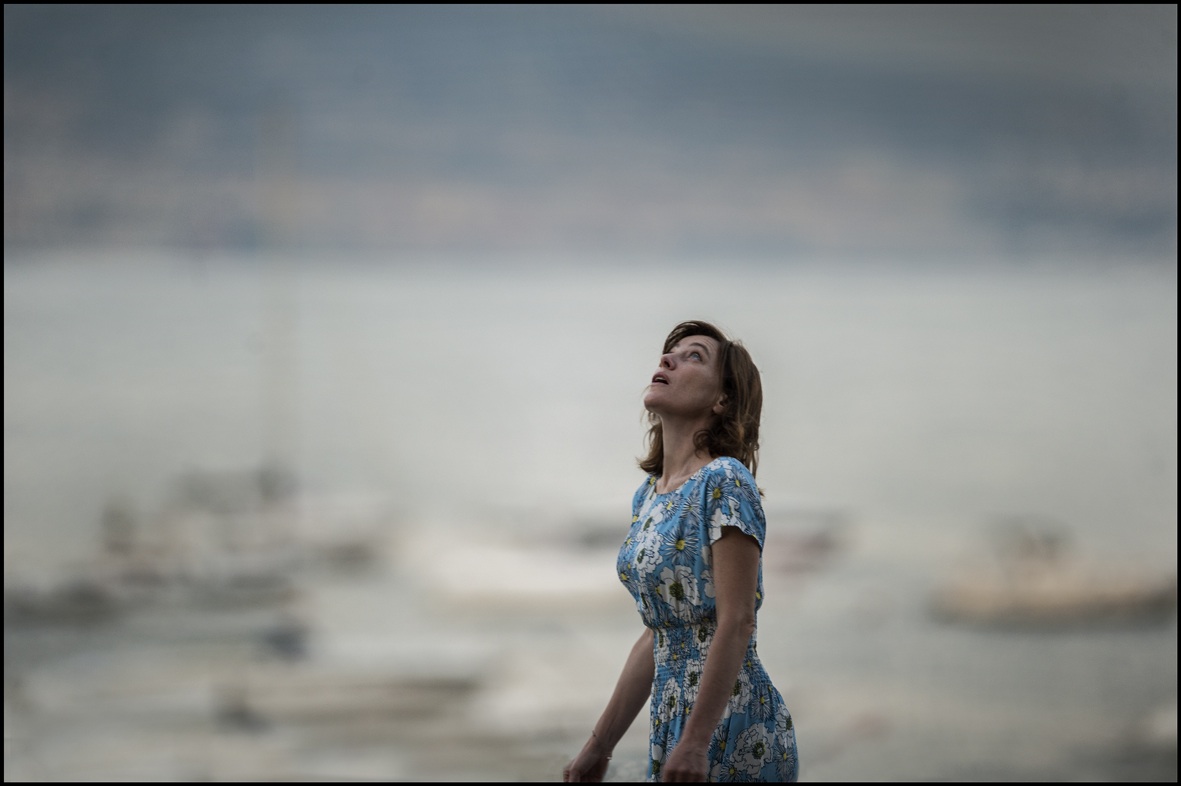This year’s Main Competition at Cannes has been surprisingly dud-free, with no movie plunging beneath the line of respectable so-so-ness, and most hovering way above it. Today, things have changed a bit with a premiere of Valeria Bruni-Tedeschi’s “A Castle in Italy.” This vanity project by the prolific actress turned writer-director was so out of sync with the general philosophy of the festival that it was rather startling to watch it unspool on the same screen as other competition movies. It’s not that it’s terrible — it’s just completely out of place, like Sha Na Na doing “At the Hop” at Woodstock. The what-just-happened vibe was all too palpable as the end credits rolled.
The film tells the story of Louise, a forty-something former actress who abandons her career in order to — as she explains it to her mother — “make room for life in life.” We meet her just as her childlessness drives her to desperation: She wants badly to have a kid, and in a way she meets one. Nathan (Louis Garrel) is a young, narcissistic actor with a mop of unruly black hair and a general air of The Cure about him. They fall in love — inexplicably, since there’s no chemistry whatsoever between the actors. They float through a number of subplots, one of which has to do with artificial insemination, another with Louise’s brother dying of AIDS, and yet another with her rich family’s financial trouble. And even though much of the script was inspired by the director’s own experience (her on-screen mother is even played by her real-life mom, Marisa Borini), that doesn’t automatically mean the movie feels real.
Tedeschi plays Louise as an update on the poor little rich girl type: she’s all exasperation and privilege walking hand in hand. She can be endearing in her skittishness, but both the part and the performance quickly get stuck in a repetitive cycle of rinse-and-repeat (Tedeschi’s signature shtick is to go from coy to ballistic within seconds). Apart from the main role, there are acting turns here that made me look away from the screen in embarrassment: Marie Rivière (best known from her work with Eric Rohmer, especially in “Summer”) appears as Nathan’s mom (and Louise’s peer), all aflutter and sharing stories of how big her son’s penis was upon birth. Not even good performances by other actors — like Xavier Beauvois as a crude, scruffy alcoholic friend of the family — save the picture, which remains shapeless throughout.
In a way, I would have preferred the film to be a typical festival debacle, in which failure comes as a consequence of gross overreaching (or old-fashioned pretentiousness). But “A Castle in Italy” is too lukewarm and conventional, too comfy and cushy, to even qualify as a serious candidate for something as momentous as the Palme d’Or. Imagine “It’s Complicated” or “Crazy, Stupid, Love” competing for the Best Picture Oscar, and you will get an idea.
Of course, you would be right in saying that worse things have happened. What does make me angry, though, is the fact that a film like this one occupies a slot in the Main Competition, which could have been conceivably better allotted to a truly original work, like Alain Guiraudie’s “Stranger by the Lake”, screened in Un Certain Regard section. Here’s a movie that actually takes risks and doesn’t use every cliché in the fat old book of comedies about crazy families. A couple of inspired bits aside — such as the scene in which Louise rubs holy water all over herself in hope of facilitating pregnancy — don’t make up for the general air of disappointment. Give the same premise to Agnès Jaoui, and I bet she would come up with a work of more subtlety, gravity and humor than Tedeschi’s pet project.












